Menu
Travel Info:
Participants
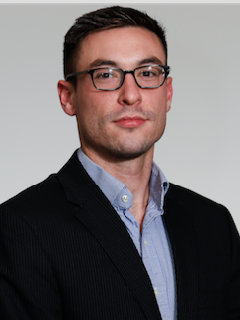
John Aggas |
John Aggas is a Ph.D. student in the Biomedical Engineering Department at Texas A&M University, U.S.A and a member of Center for Bioelectronics, Biosensors and Biochips (C3B®), U.S.A. John is also the president (2015 - current) of the Biomedical Engineering Graduate Student Association at Texas A & M University. He received his B.S. in Electrical Engineering from Clemson University, U.S.A., in 2014 and his M.S. in Digital Signal Processing at Clemson University, U.S.A., in 2015. His current work focuses on altering the electrical properties and morphology of conductive polyaniline nanofibers for use in biologically responsive soft circuit elements within biosensors. |
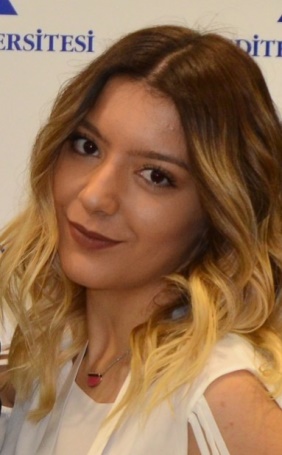
Burcu Akcay |
Burcu was born and raised in the city of Canakkale, Turkey and is a rising senior Biomedical Engineering student at Yeditepe University in Istanbul, Turkey. She is an active member of IEEE WIE and a vice-president of IEEE EMBS at Yeditepe University. She was a member of the organizing committee of the 2nd IEEE EMBS Turkey Conference. She is currently working at the Maquet-Getinge Group with an emphasis on surgical workflow and studies on a research and development projects in the healthcare sector. In her spare time, she enjoys dance, travel, photography and tennis. |
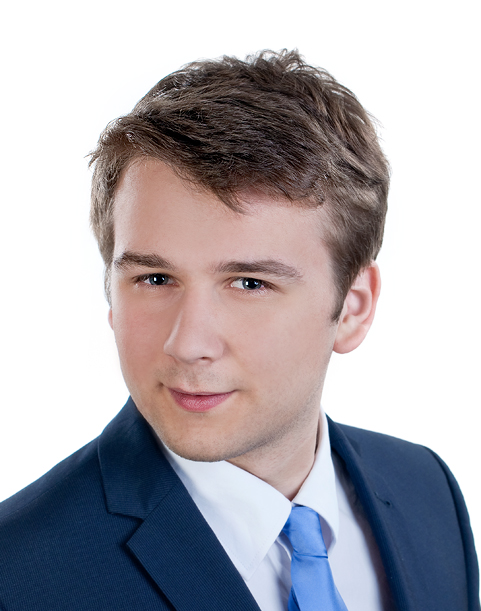
Dawid Baranski |
David Baranski is an undergraduate engineering student at the Faculty of BIomedical Engineering at the Silesian University of Technology in Zabrze, Poland. His program focuses on Informatics and Medical Devices. He is a member of a special-interest group called "BioSoft" because he loves biocomputing and his research focuses on sleep stage identification and optimization. He also designs biomedical devices and sensors and simulations in TINA TI program. He plans to continue graduate school in the Department of Biosensors and Biomedical Signals Processing at the same university. In his free time he enjoys reading healthcare related articles, playing tennis table and piano, and listening to music. |
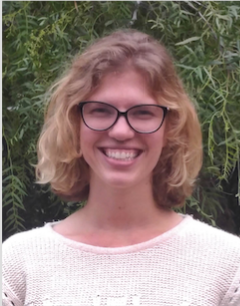
Kristen Brosamer |
Kristen Brosamer is an incoming PhD student in the department of Biomedical Engineering at the University of Houston. In 2015 she graduated from UC Santa Cruz with a Bachelor's degree in Biomolecular Engineering and has since worked for two different biotech companies in Northern California studying nanotechnology of synthetic biology. Her research interests include bionanoscience, molecular genetics and targeted drug therapy. |
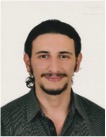
Andre Luka Cakici |
Andre Luka Cakici is a senior year undergraduate student of Biomedical Engineering with a minor on Engineering Management at Bahcesehir University, Istanbul, Turkey. As an active member of EMBS, he established a student chapter in his university, held the chair position for an academical year (2015-2016) and is currently the student representative of EMBS Turkey Chapter. He is very enthusiastic about technology innovation and translational engineering. He is currently working at the Photonics and Nanodevices Lab in his university, as an undergraduate research assistant for the project entitled “Time Reversal Based Photoacoustic Imaging” which is funded by the Scientific and Technological Research Council of Turkey (TUBITAK). The project aims to improve the image quality of photoacoustic tomography for breast imaging, and he is responsible from experimental design, hardware development and purchase management. His future goal is to become an academician with strong industry relations, who conducts translational researches. In his free time, Andre likes to sail, listen to music, read books and academical journals, and work on his home-built 3D printer. |
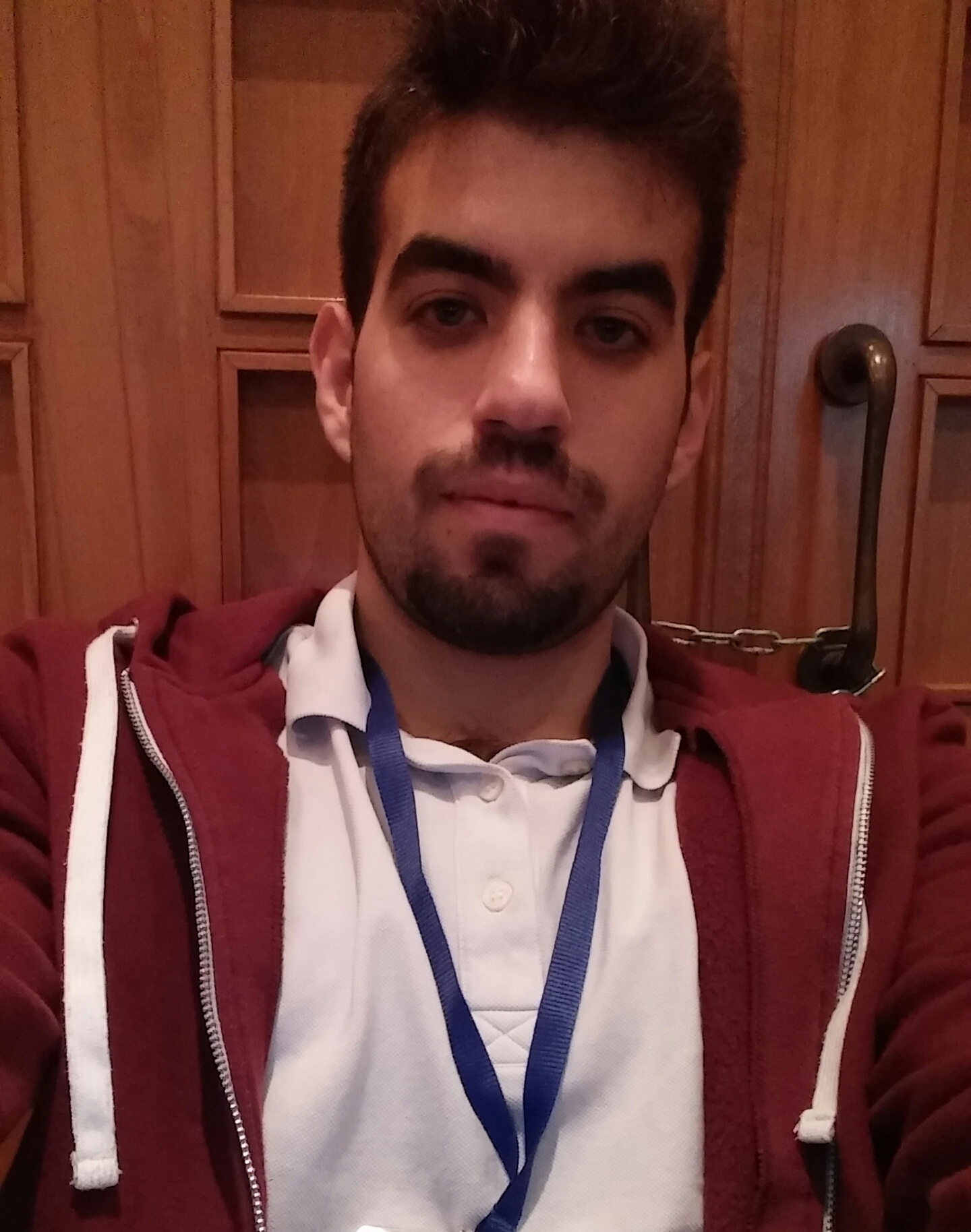
Vasileios Dimakopoulos |
Vasileios is originally from Pirgos, Ileia, Greece and is a senior at Technical University of Crete, Greece in Electrical & Computer Engineering Department. Being on last year of his studies his interests lean towards Biomedical Engineering and especially in imaging systems and techniques on cancer detection. He is currently working as Junior Engineeer in Computing Infrastructure Directorate of Technical University while last year did his internship at IBM Hellas as Oracle Data Integrator ( O.D.I ) Developer. In the former, his duties correlate with deployment and debugging of several Personal Computers in software,network and hardware issues while in the latter his tasks involved a Data Warehouse Project in which he was dealing with Data and the way that are populated debugging at the same time various defects. Upon receiving his degree he would like to further pursue his penchant for Biomedical Engineering as this field is gaining increasing importance in all aspects and is having a significant impact on humanity and society as well. Especially, one of his goals is to contribute to research area while studying for a PhD program. |
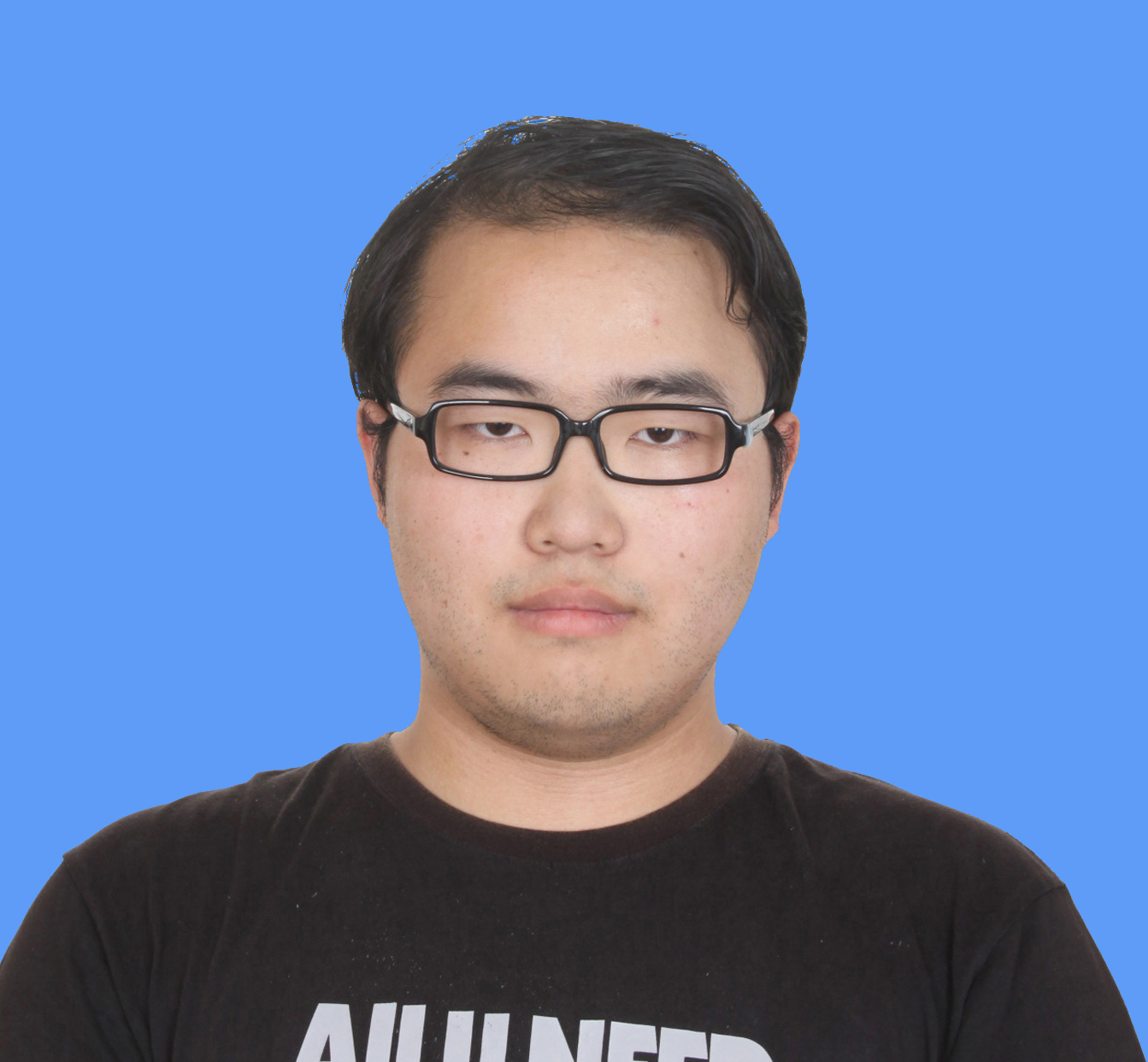
Yuan Gao |
Yuan Gao is a full-time PhD student (2014-2019) of the Key Laboratory of Molecular Imaging, Chinese Academy of Sciences. His PhD supervisor is Professor Jie Tian, fellow of IEEE, SPIE, IAMBE, AIMBE, IAPR. After graduated from department of control science and Engineering, Zhejiang University, His major is Technology of Computer Application and focuses on the improvement of multi-modalities system, especial the reconstruction of diffusion optical reconstruction. He is interested in the optimization theory and the pattern recognition. He can be contacted at gaoyuan2014@ia.ac.cn |
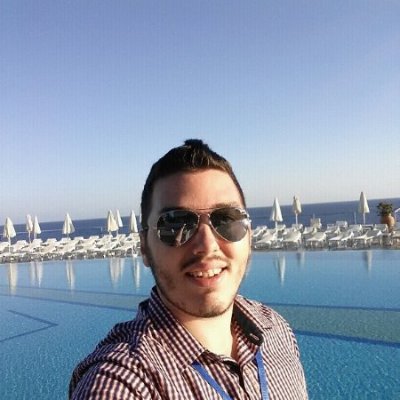
Ioannis Gkouzionis |
Ioannis Gkouzionis was born and raised in the city of Thessaloniki, Greece, and currently studies at Technical University of Crete as a 5th year BS/MS student in Electrical and Computer Engineering with a focus on Medical Imaging. He is currently working towards his thesis with title “Spectral Cube Reconstruction From Multiplexed Spatial and Spectral Data” under the supervision of Prof. Costas Balas. His thesis research deals with a new method in acquiring and reconstructing the spectral cube in Hyper Spectral Imaging. During last summer, Ioannis worked as an intern at the Information and Technology Department of the Municipality of Chania, Crete. There, his duties were the maintenance of the communication systems and networks of the Municipality. After graduation in September 2017 he hopes to pursue a PhD in Biomedical Engineering. |
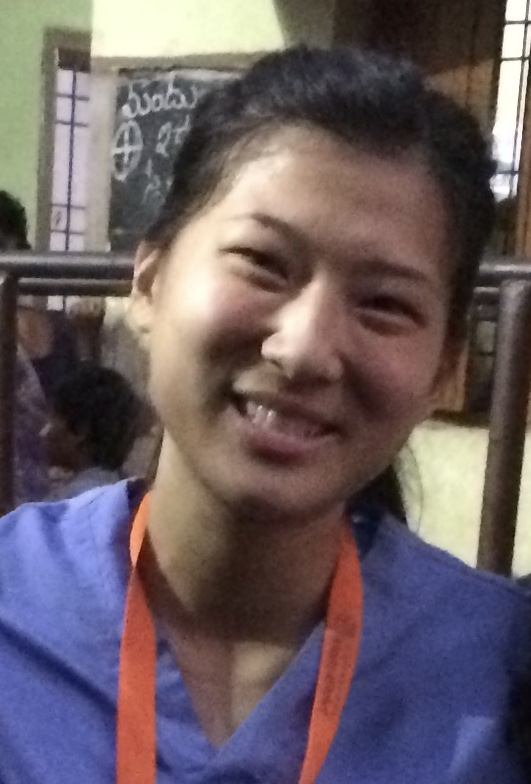
Megan Goh |
Megan Goh is from Fort Worth, Texas and is currently working on her Bachelor's degree in biomedical engineering with a neuroengineering focus at the University of Houston. She is working in a biomedical optics and imaging laboratory headed by Dr. Kirill Larin at the University of Houston, specializing in the use and applications of optical coherence elastography (OCE) and optical coherence tomography (OCT). She is currently working on a project that investigates how repetitive mild traumatic brain injuries affect the biomechanical properties of the brain. In addition to her research and studies, she is a college athlete as a member of the NCAA UH Women's Soccer team. She is also an active volunteer in numerous organizations both in and outside of Houston. As an International Medical Relief Team member, she travelled to Visakhapatnam, India on a medical relief trip. While there, she assisted physicians and nurses from around the world in providing medical treatment and pharmaceuticals to those without access to regular healthcare. In her free time, she enjoys cooking, kayaking and photography. |
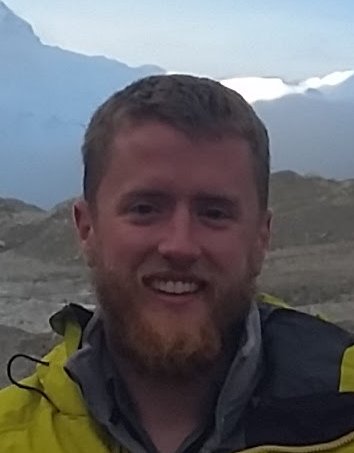
Jason Jones |
Jason Jones is currently pursuing his PhD in Biomedical Engineering at Cornell University in the Schaffer-‐Nishimura lab. During his time in the lab he has developed an intravital imaging system which using higher order nonlinear excitation and fast scanning to facilitate functional imaging in the heart and spinal cord of rodents. Jason’s thesis work includes quantification of cardiomyocyte calcium signals in healthy and pathological conditions to better understand mechanisms underlying arrhythmogenic tissue following infarction. When Jason is not in the lab he also enjoys backpacking, restoring motorcycles, and teaching outdoor education courses at Cornell. |
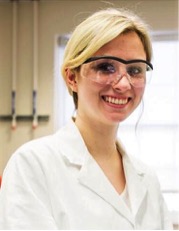
Olivia Lanier |
Olivia L. Lanier received a Bachelor of Science degree in Chemical and Biomolecular Engineering from Ohio University in May 2015. In August 2015, she began pursuing her Ph.D. in Biomedical Engineering at the University of Florida (UF) being co-advised by Dr. Jon Dobson and Dr. Peter McFetridge. Her graduate research focuses on (i) COMSOL® finite element modeling of magnetic particle capture for extracorporeal magnetic separation of inflammatory cytokines from blood at physiological flow rates; and (ii) developing a remotely activated magnetic nanoparticle-based delivery platform capable of triggering the release of multiple and varying doses of a complex protein matrix derived from human placental tissues. Olivia is a fellow for UF’s Institute of Cell and Tissue Science and Engineering, and is involved in mentoring undergraduate and high school students in engineering. In her free time, she enjoys doing Insanity workouts, spending time with her family/friends, and playing with her cats. |
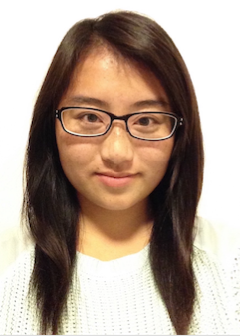
Jenny Lou |
Jenny Lou is a second year MSc candidate in the Department of Medical Biophysics at the University of Toronto. Under the supervision of Dr. Gang Zheng, she is conducting research that aims to improve a promising form of cancer immunotherapy called adoptive cell therapy, in which T-cells are isolated, expanded ex vivo and injected into patients to kill tumor cells. Specifically, she is evaluating the potential of nanoparticles to locally deliver immunostimulants and to track T-cells. She recently received a Vanier Canada Graduate Scholarship to support her doctoral studies, which she will continue in Dr. Zheng’s lab. Previously, Jenny obtained a Bachelor of Science in neuroscience at the University of Alberta. There, she spent a few summers investigating the use of neuromuscular electrical stimulation for rehabilitation under the mentorship of Dr. David Collins and the Human Neurophysiology Laboratory. Outside of the lab, Jenny serves as the editor for the National Student Network’s blog, enjoys reading articles on Medium, and loves a good game of foosball. |

Manon Magill |
Manon Magill is a recent graduate of Georgia Tech with a B.S. in Biomedical Engineering. While at Tech, she worked as an Undergraduate Research Assistant in the Hu Biolocomotion Lab investigating nasal cavity airflow for the improvement of sensor and filtration technologies. In September, she will begin her graduate education studying Bioengineering at the University of California, San Diego. Currently, her interests include biomaterials and tissue engineering. In her free time, you can find Manon exploring Atlanta, relaxing on the beach, or hitting the gym. |
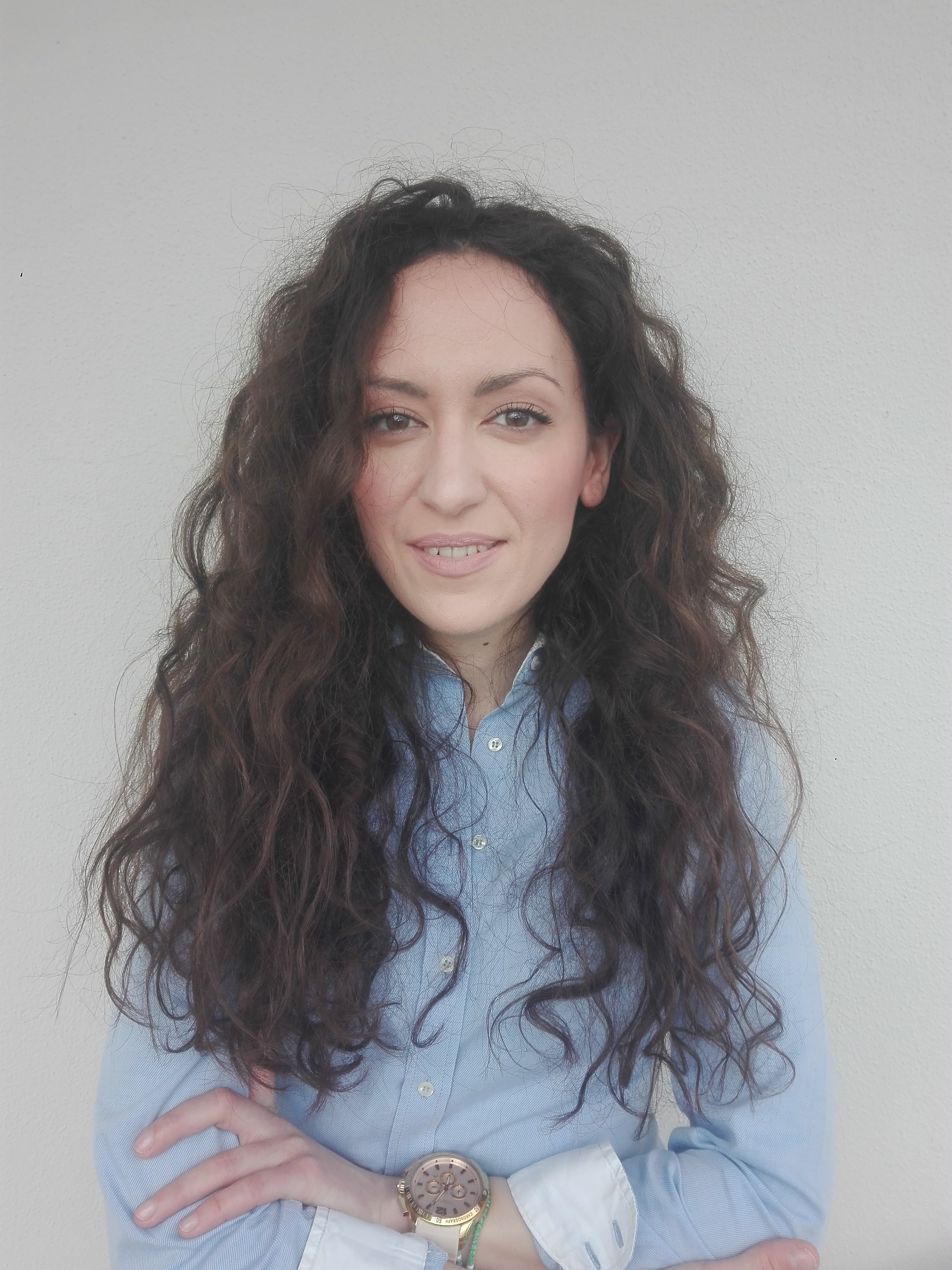
Amalia Ntemou |
Amalia K. Ntemou was born in Ioannina, Greece, in 1990. She received her diploma degree in Physics from the Department of Physics, School of Natural Sciences, University of Ioannina, Ioannina, Greece, in 2014. She is an M.Sc candidate at the Department of Materials Science and Engineering, University of Ioannina, Greece. Her master thesis concerns modeling of the functional processes of the brain tissue. Her main areas of interests are biomedical engineering and modeling of human tissues. Since 2016, she has been member of the Unit of Medical Technology and Intelligent Information Systems, Department of Materials Science and Engineering, University of Ioannina. |
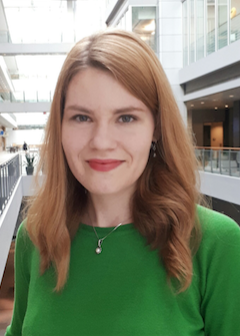
Marta Overchuk |
Marta Overchuk was born and raised in Lviv, Ukraine. In 2014 she obtained a honours BSc in Biochemistry from the Ivan Franko National University of Lviv, where she obtained research experience in the areas of cell biology, drug delivery and bio-nano interactions. Currently, she is pursuing a PhD degree at the Institute of Biomaterials and Biomedical Engineering at the University of Toronto working under the supervision of Prof. Gang Zheng. |
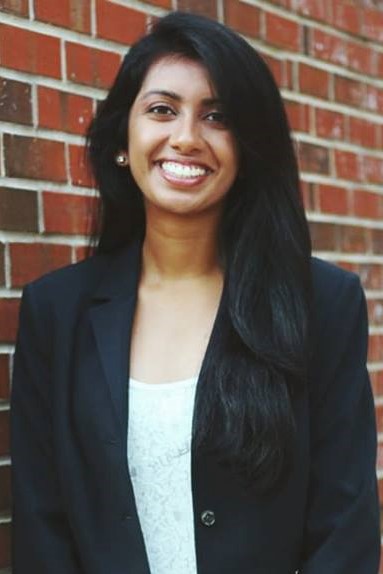
Rachna Sannegowda |
Rachna Sannegowda is a third-year student at the University of Florida majoring in Biomedical Engineering with a focus in Neural Engineering. As a University Scholar in the college of medicine, she is particularly interested in examining relationships between white matter hyperintensity, a neurological underpinning, and age-related chronic pain. This has enabled her to apply coursework and programming knowledge towards fMRI software analysis. As a freshman, Rachna became involved in the executive branch of Student Government and worked with her Health Affairs Cabinet to destigmatize mental health illnesses and improve accessibility of campus resources. She currently serves as the Student Life Division Chairwoman and was previously co-chair of the Student Health Advisory Board, governing body of the Student Health Care Center. She also currently serves as the External Vice President of the Indian Student Association and is a member of the Indian Classical dance team. When Rachna visits her parents in India, she enjoys teaching English classes to children at the Parikrma Humanity Foundation and plans to apply to graduate school in the upcoming year. |
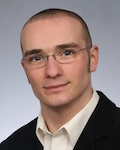
Bartlomiej Sawaryn |
Bartlomiej Sawaryn is a student of first year M.Sc. Faculty of Biomedical Engineering, Department of Biosensors and Biomedical Signal Processing at the Silesian University of Technology in Zabrze, Poland, graduated B.Sc. in Biomedical Engineering in this year at the same university. He has always wanted to meet his two interests - medicine and technologies. That is how he started his education as a biomedical engineer. During his first step of studies he was working among others on ECG classifier based on neural networks. Apart that one of his applications was a tool for cerebral cortex segmentation in Hydrocephalus diseases. All this projects were designed in Matlab environment. Now he is exploring another of his areas of interests: electrical medical devices (he is working with Arduino). On one of his summer courses he had internship in the Department of Diagnostic MR in the Center of Oncology - Maria Skłodowska-Curie Memorial Institute, Branch in Gliwice as a laboratory worker. He is also involved in examinations of biomorphic materials used in fluids and gases cleaning. He would like to make biosensors from them by adding enzymes encapsulated in polymers, which will be improving adsorption of that materials. In his free time he is reading automotive press, listening to jazz and blues and doing sports, especially swimming and skiing. In the future he would like to continue his studies on Ph.D. course and become a university scientific worker. |
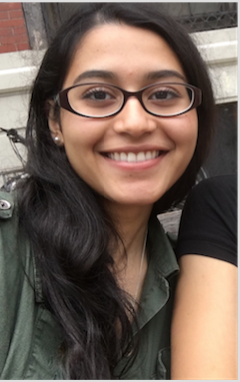
Mahum Siddiqui |
Mahum Siddiqui, originally from Huntington, NY, is a second year Biomedical Engineering undergraduate at Stony Brook University. She plans to specialize in bioimaging and is looking forward to exploring the prospects of this field. Mahum currently works in the Developmental Stress and Prevention lab under Dr. Kristin Bernard, studying the social and behavioral effects of early childhood stress and adversity using EEG data. She has also had experience synthesizing gold nanoparticles for breast cancer research in the Nanoparticles in Medicine Lab under future PhD, Richard Darienzo. |
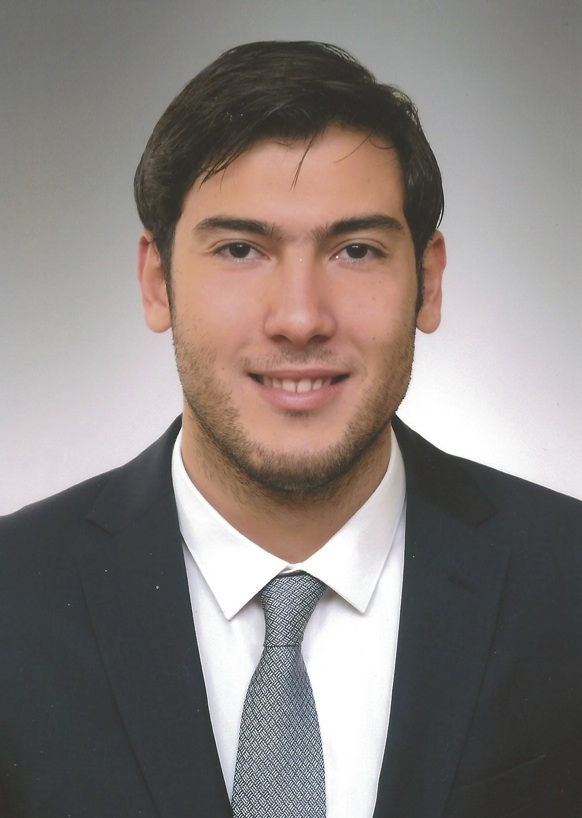
Noyan Songur |
Noyan Songur is a graduate student at Imperial College London, on track to complete his MSc degree on Human and Biological Robotics. After successfully completing his undergraduate studies at Columbia University in New York City with a degree in biomedical engineering, he worked at a healthcare consultancy company for a year in Istanbul, where he managed various healthcare projects and conducted hospital analysis. As a son of two medical doctors, he has always been interested in biomedical sciences, which he explored through multiple research positions at Harvard Medical School, Chiba University in Japan and Optical Tomography lab at Columbia University. His current research focuses on human-machine interfaces to non-invasively control a soft robotic glove for patients with motor function loss. In his free time, he enjoys traveling, going to art exhibitions and working on analog photography. He is currently on the Executive Board of the annual Fotoistanbul International Photography Festival, which is the largest and only international photography festival of Turkey. |
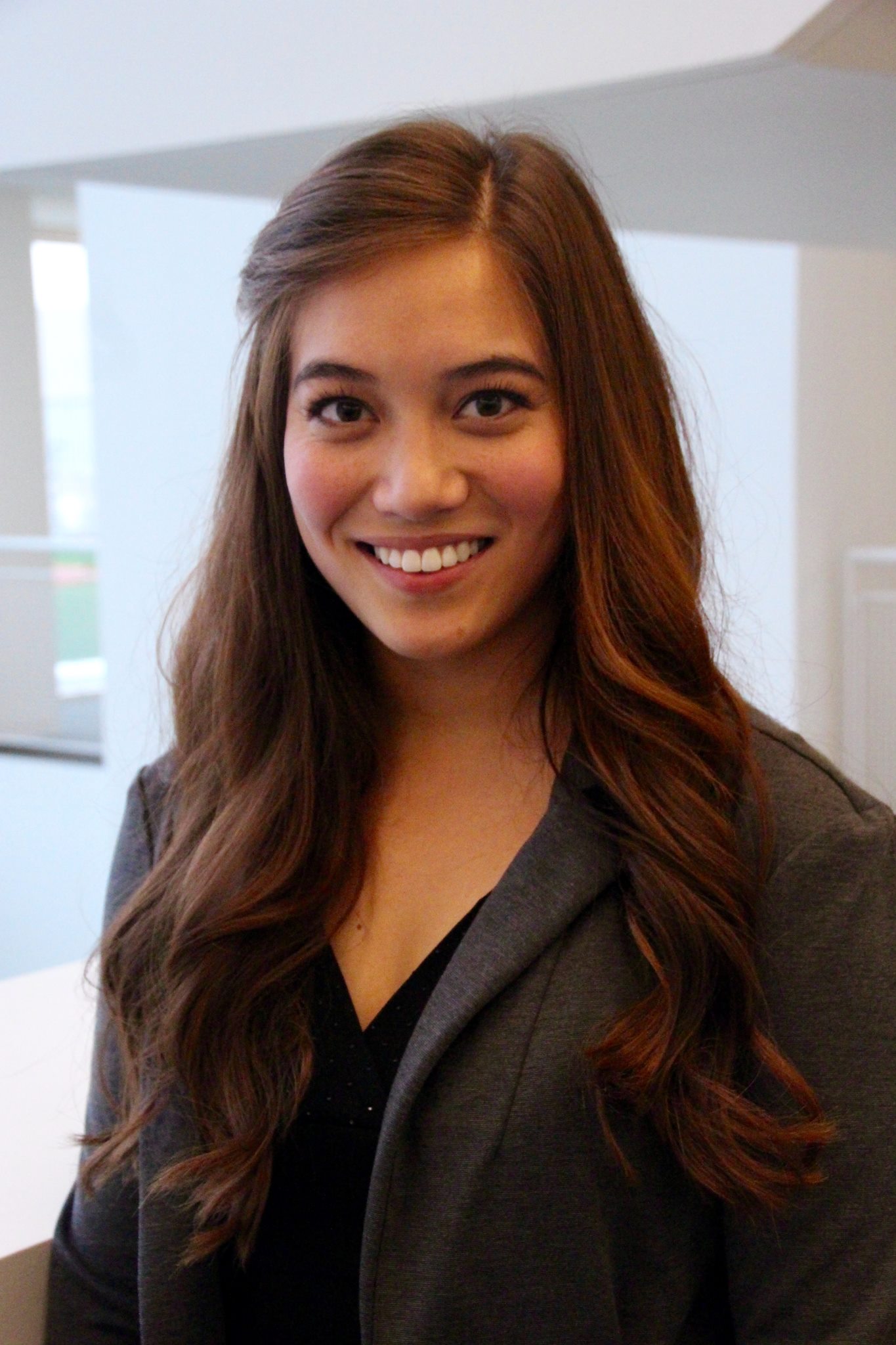
Madisen Swallow |
Madisen Swallow was born and raised in Orange County, California and is currently an undergraduate studying at Cornell University in Ithaca, New York. She studies Biological Sciences and Science and Technology Studies in the College of Arts and Sciences and is a Meinig Scholar. At Cornell, she works in the Schaffer-Nishimura Lab in the Nancy E. and Peter C. Meinig School of Biomedical Engineering. She started with the Schaffer-Nishimura Lab in the Summer of 2015, and is expected to graduate in May of 2018. Her current projects study brain blood flow in Alzheimer's disease, focusing on identifying the mechanism which causes a higher number of capillary stalls and subsequent blood flow decrease in the cortex of Alzheimer's disease mouse models. In her free time, she enjoys relaxing with her friends, volunteering, traveling the world, and working for a non-profit named Cayuga's Watchers. |
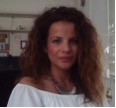
Panagiota Tsompou |
Panagiota Tsompou was born in Preveza, Greece, in 1991. She received her diploma degree in Physics from the Department of Physics of the University of Ioannina, Greece in 2015. Since 2016 she has been working on cardiovascular engineering as a research associate of MedLab. She has been participating in Master's program "Advanced Materials" associated with Biomaterials and Biomedical Technology of the Department of Materials Science and Engineering, University of Ioannina, Ioannina Greece. Her diploma thesis is on the study of imaging data of progression and plaque growth modelling. She has authored or co-authored two scientific papers in peer-reviewed international conferences. |
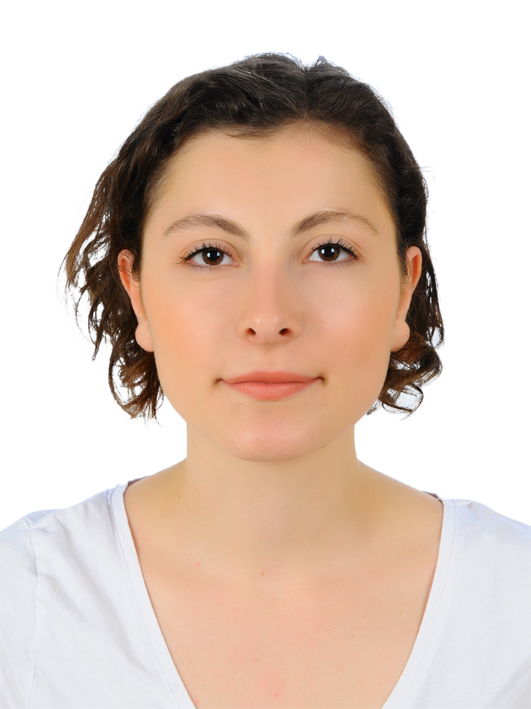
Gonca Turna |
Gonca Turna is a senior undergraduate in the biomedical engineering department at Yeditepe University. She is interested in developing new Technologies in Medicine, with a major focus on translational medicine, She has been working on the development of a 'bionic arm'. She is currently the vice president of the IEEE EMBS Student Chapter at Yeditepe University. She was a member of the organizing committee of the IEEE EMBS Turkey Conference. Gonca was born in Artvin, a beautiful city of northestern side of Turkey. She currently lives in Istanbul. She enjoys dancing, cooking, watcing theatre and movies. She really loves reading books, especially Sheakespeare. She actively participates in women rights organizations to promote women in engineering, science, and medicine. |

Amanda Urke |
Amanda Urke is a rising junior at Stanford University majoring in Bioengineering. With a particular interest in leveraging genetic engineering for therapeutic purposes, she works in the Qi Lab under the direction of Dr. Antonia Dominguez. This summer she will be conducting research that applies CRISPR/dCas9 tools in human induced pluripotent stem cells (hiPSCs) to investigate how various promoters can drive dCas9 expression and eventually cellular differentiation of motor neurons by endogeneous gene regulation. Also determined to improve the ways in which science is communicated to the public, Amanda is a co-founder and president of Stanford's new pop science organization - Fascinate Publication (www.fascinatepublication.org). With a desire to make a difference in the fields of neurodegenerative diseases and/or oncology, she hopes to use her education to pursue medical school or an MSTP program to become a research doctor, though is also interested in exploring the bioengineering industry. As a member of the Varsity Synchronized Swimming team, she helped Stanford win the National Champion title and earned a Collegiate All-American award as a freshman. Raised in Minnesota, she loves spending time at the lake with friends and family, downhill and water skiing, and traveling. |
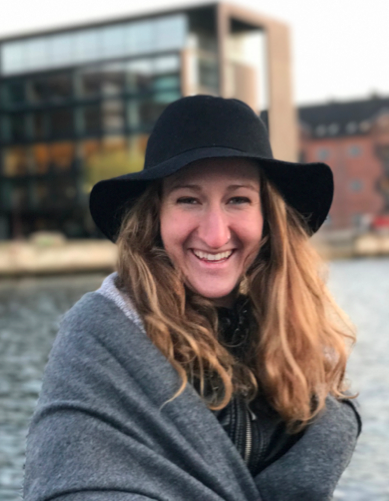
Lindsay Vinarcsik |
Lindsay Vinarcsik is a third-year student at Cornell University in Ithaca, New York. Lindsay works in the Schaffer-Nishimura Lab in Cornell's Meinig School of Biomedical Engineering where she started by contributing cellular and molecular analyses to a project that found a novel mechanism of reduced cerebral blood flow in a mouse model of Alzheimer's disease: transiently plugged capillary segments. Since the completion of this foundational paper Lindsay has been working on designing and running experiments to shed light on the molecular mechanism behind the plugged capillaries. The end goal of elucidation of the mechanism is insight into more targeted drug therapies for Alzheimer's Disease. Lindsay is also a part of the Eyes on Alz team, a group that developed an online platform that utilizes crowdsourcing for data analysis. Her role in this citizen science initiative is that of a translator; creating accessible materials to share with the people playing the game, thus allowing them to truly be a part of the advances in the lab by clarifying some of the complexities that would otherwise be a barrier to layperson understanding. Lindsay's goal after Cornell is to enroll in a Medical Scientist Training Program and work toward an MD/PhD. Born and raised in Colorado, Lindsay embodies the stereotypical mountain person, rarely found inside or unaccompanied by her chocolate labrador. |
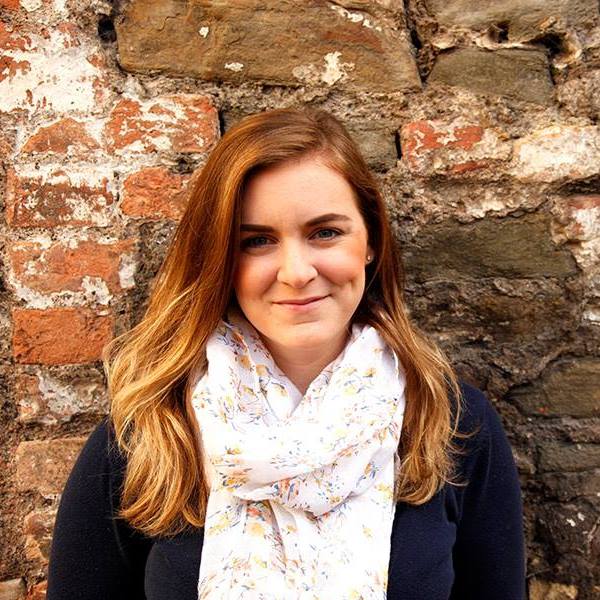
Claire Witherel |
Claire Witherel received her bachelor's and master's in Biomedical Engineering from Drexel University's BS/MS program in June 2012. During her undergraduate career, Claire worked for Integra LifeSciences as a Product Development Engineer (co-op) in their Neurosurgical Biomaterials group, where she assisted in the development of a next generation collagen matrix used to regenerate the dura mater. During her third year at Drexel, Claire received the National Science Foundation's International Research and Education in Engineering (IREE) Fellowship to conduct her master's research in the Shanghai Key Tissue Engineering Laboratory of Shanghai Jiao Tong University (PIs: W. Liu & G. Zhou). Her masters research focused on designing a non-degradable, drug eluting, super-porous hydrogel to promote cartilage cell integration into the material and into surrounding tissue if implanted in vivo (PI: K. Spiller and A. Lowman). Prior to graduation, Claire also held a six-month appointment in International Regulatory Affairs (co-op) at Integra LifeSciences where she prepared technical dossiers for all products and compiled/managed a master list of product pricing and documentation for all third-party distributors located in Latin America and Asia Pacific regions. After graduating in 2012, Claire felt strongly about pursuing applications-based research and involving industry in that process; through her connections at Integra LifeSciences she established a joint PhD program between Drexel and Integra, to facilitate translational research. During that time, she applied for and was awarded the Whitaker Fellowship 2014-2015 to conduct research at the University of Bristol, United Kingdom (PI: P. Martin). There she developed an exciting and creative project exploring how immune cells interact with implanted biomaterials in zebrafish in real-time. Upon her return to Philadelphia in August 2015, Claire fostered another industrial-academic collaboration between Drexel and Osiris Therapeutics, where she has characterized how immune cells change their behavior in response to a wound healing therapy derived from human amniotic membrane. Claire''s overall goals are to conduct mutually interesting and beneficial research between the academic, industrial, and international communities. In the last steps of her PhD, Claire aims to take what she has learned about immune cell-biomaterial interactions and design an immunomodulatory biomaterial to enhance chronic wound healing. |
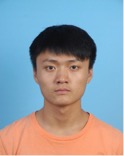
Shuaitong Zhang |
Shuaitong Zhang is a full-time PhD student (2015-2020) of the Key Laboratory of Molecular Imaging, Chinese Academy of Sciences. His PhD supervisor is Professor Jie Tian, fellow of IEEE, SPIE, IAMBE, AIMBE, IAPR. After graduated from school of Biomedical Engineering, Beijing Jiaotong University, He majors in Technology of Computer Application and researches on analysis of pituitary adenomas MRI images using a radiomics approach. His work, which is about the prediction of the subtypes of pituitary adenomas, has been done and is planned to be contributed to European Radiology. He is interested in Transfer Learning, and is applying this technology into analysis of hepatocellular carcinoma MRI images. He resides in Beijing currently, and can be contacted at zhangshuaitong2015@ia.ac.cn. |
